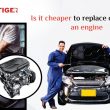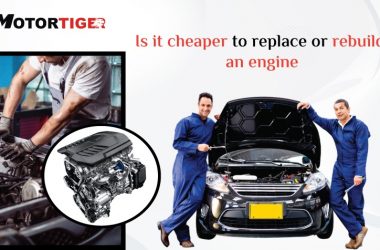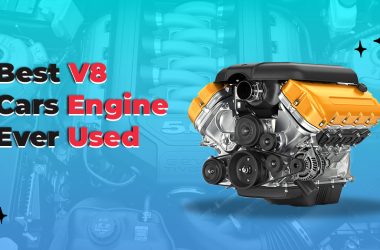Used car engines are an important aspect of the automotive industry since they provide a cost-effective solution for vehicle owners who need to replace their engine without purchasing a brand new vehicle. Everything you need to know about used car engines, including how they operate, how to buy them, and what to look for when selecting a used engine for your vehicle, is right here.
What Exactly is a Used Car Engine?
A used automobile engine is one that has been extracted from a vehicle and refurbished or rebuilt in order to be offered as a replacement engine for another vehicle. Used engines are available in a variety of conditions, ranging from lightly used engines with minimal mileage to extensively used engines that may require more substantial repairs or rebuilding.
How Do Used Car Engines Function?
A used car engine functions similarly to a new engine, with the main difference being that it has previously been used in another vehicle. The engine generates power by burning gasoline and air in the combustion chamber, which is then sent to the vehicle’s wheels via the gearbox.
When Should You Purchase a Used Car Engine?
There are a number of reasons why you might want to acquire a used car engine. For example, if the engine in your vehicle has failed due to wear and tear, corrosion, or other issues, a used engine can provide a cost-effective replacement alternative that can help you get your vehicle back on the road without having to buy a completely new automobile.
Furthermore, if you’re restoring an older vehicle and want to keep it as accurate as possible, an used engine can be a smart alternative, allowing you to keep the vehicle’s authenticity while also guaranteeing that it functions reliably.
How to Purchase a Used Car Engine?
There are various aspects to consider when purchasing a used automobile engine to guarantee that you receive the best engine for your needs. These are some important things to take when purchasing a used engine:
- Investigate your options: Do some research before purchasing a used engine to understand what types of engines are available for your car, what condition they are in, and how much they normally cost.
- Assess your financial situation: Because used engine prices can vary greatly, it’s critical to have a firm grasp on your budget before you begin looking. When determining the entire cost, remember to include the cost of installation as well as any necessary repairs or modifications.
- Examine the engine’s history: Before acquiring a used engine, it’s critical to ensure that it hasn’t been damaged or abused in the past. Checking the engine’s service history, inspecting the engine for signs of wear and tear, and performing a compression test to determine the engine’s overall health are all possible.
- When purchasing a used engine, it is critical to select a reliable seller who can give you with accurate information about the engine’s condition and history. Search for sellers who specialise in old engines and have a high industry reputation.
- Consider a warranty: Several vendors provide warranties on their used engines, which can give you extra peace of mind and protection if something goes wrong with the engine after you buy it. Read the warranty carefully to understand what is and is not covered. If your engine has failed due to wear and tear, damage, or other concerns, a used engine can give a cost-effective replacement alternative that will allow you to get your vehicle back on the road without having to buy a new vehicle.
Furthermore, if you’re restoring an older vehicle and want to keep it as accurate as possible, a used engine can be a smart alternative, allowing you to keep the vehicle’s authenticity while also guaranteeing that it functions reliably.
Conclusion
Used car engines can be an excellent method to save money on auto repairs or to improve the performance of your vehicle. When buying a used engine, it is critical to do your homework and ensure that you are getting a quality product from a reliable source. Compatibility, mileage, and warranties are also key considerations.
Proper maintenance is essential to ensuring that your used engine lasts as long as possible. Oil changes, tune-ups, and inspections on a regular basis can assist discover and address faults before they become severe difficulties. Also, utilising high-quality oil and other fluids might help your engine last longer.
Overall, while purchasing and maintaining a used automobile engine takes some effort, it can be a cost-effective solution to keep your vehicle running well. A used engine can give dependable performance for years to come with the proper study, preparation, and maintenance.
Also Read:- Is it Cheaper to Replace or Rebuild an Engine
FAQs
1. What are used car engines?
Used car engines are engines that have been removed from a previously used vehicle and are being sold separately. They may be sold as a complete engine or as individual parts.
2. Why would you need a used car engine?
There are several reasons why you might need a used car engine. Your engine may have failed due to wear and tear or damage, and you may need a replacement. Alternatively, you may be restoring a classic car and need an engine that is no longer in production.
3. What are the benefits of buying a used car engine?
One of the main benefits of buying a used car engine is cost savings. Used engines are typically less expensive than new engines, and can be a cost-effective way to repair your vehicle. Additionally, buying a used engine can be more environmentally friendly than purchasing a new engine, as it reduces the need for new materials and resources.
4. What are the risks of buying a used car engine?
One of the main risks of buying a used car engine is that it may have hidden problems or damage that are not immediately apparent. It’s important to thoroughly inspect any used engine before purchasing it, and to have it checked by a mechanic if possible. Additionally, there may be compatibility issues if the used engine is not the exact same model as your vehicle’s original engine.
5. How do you find and purchase a used car engine?
There are several ways to find and purchase a used car engine. You can search online marketplaces such as eBay or Craigslist, or look for local auto salvage yards or engine re-manufacturers. Before purchasing a used engine, it’s important to verify its condition and compatibility with your vehicle.
6. What should you look for when inspecting a used car engine?
When inspecting a used car engine, there are several things to look for. Check for signs of damage or wear, such as cracks or leaks. Inspect the oil and coolant levels and look for signs of contamination or discoloration. Additionally, ask about the engine’s history, including its mileage and any previous repairs or maintenance.
7. How can you ensure compatibility with your vehicle?
To ensure compatibility with your vehicle, it’s important to verify that the used engine is the exact same model as your vehicle’s original engine. Additionally, check for any differences in the engine’s electrical connections or mounting points.
8. What should you do after purchasing a used car engine?
After purchasing a used car engine, it’s important to properly install and break in the engine to ensure optimal performance and longevity. This may involve replacing any damaged or worn parts, such as belts or hoses, and properly lubricating the engine. Additionally, follow any manufacturer or mechanic recommendations for breaking in the engine.
9. What are some tips for maintaining a used car engine?
To maintain a used car engine, it’s important to follow a regular maintenance schedule, including oil changes, filter replacements, and tune-ups. Additionally, be mindful of any signs of trouble, such as strange noises or reduced performance, and address them promptly to avoid further damage.
10. How long can a used car engine last?
The lifespan of a used car engine can vary depending on its condition, maintenance history, and usage. With proper maintenance and care, a used engine can last for many years and provide reliable performance. However, it’s important to keep in mind that a used engine may have a shorter lifespan than a new engine, and may require more frequent repairs or replacements.






